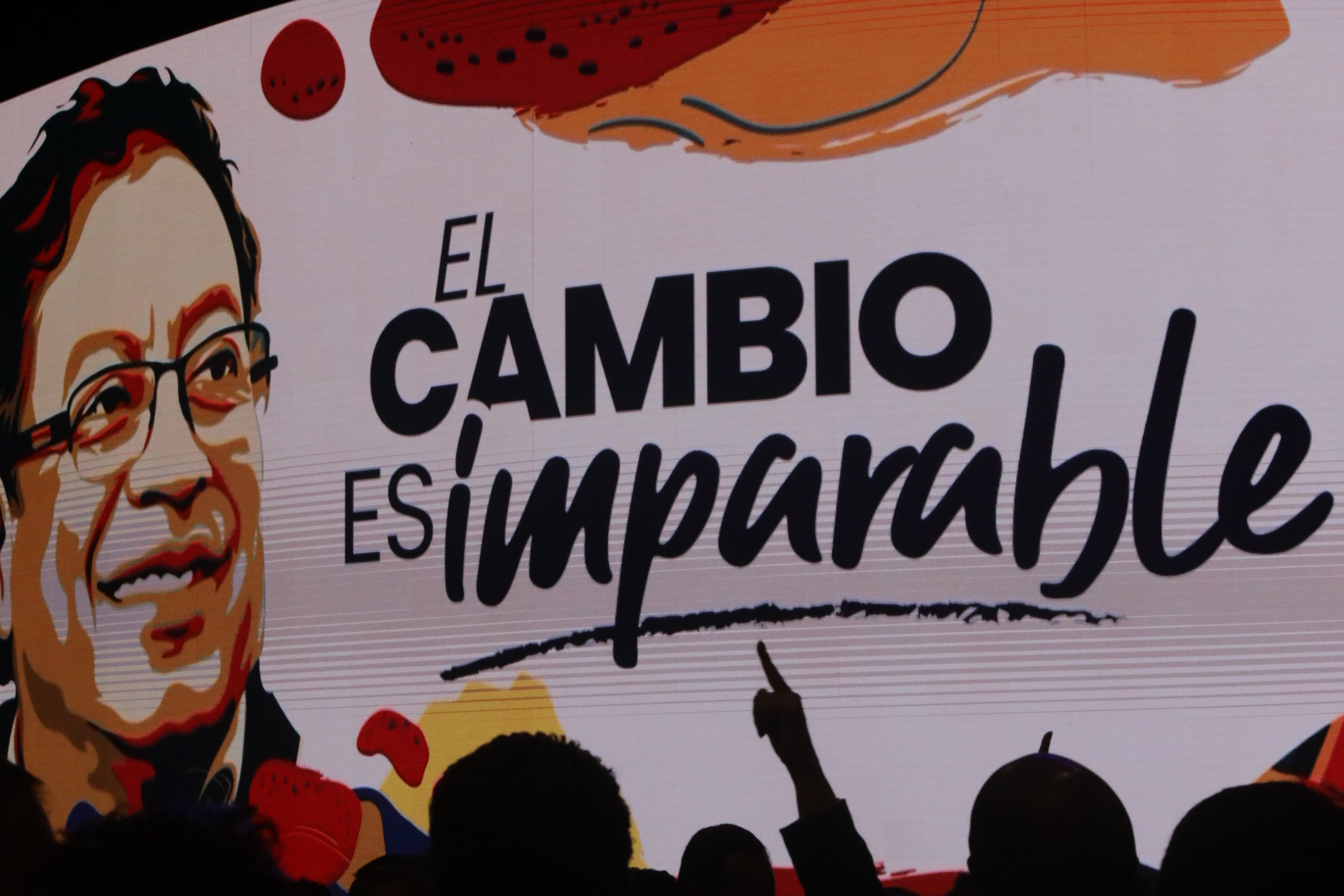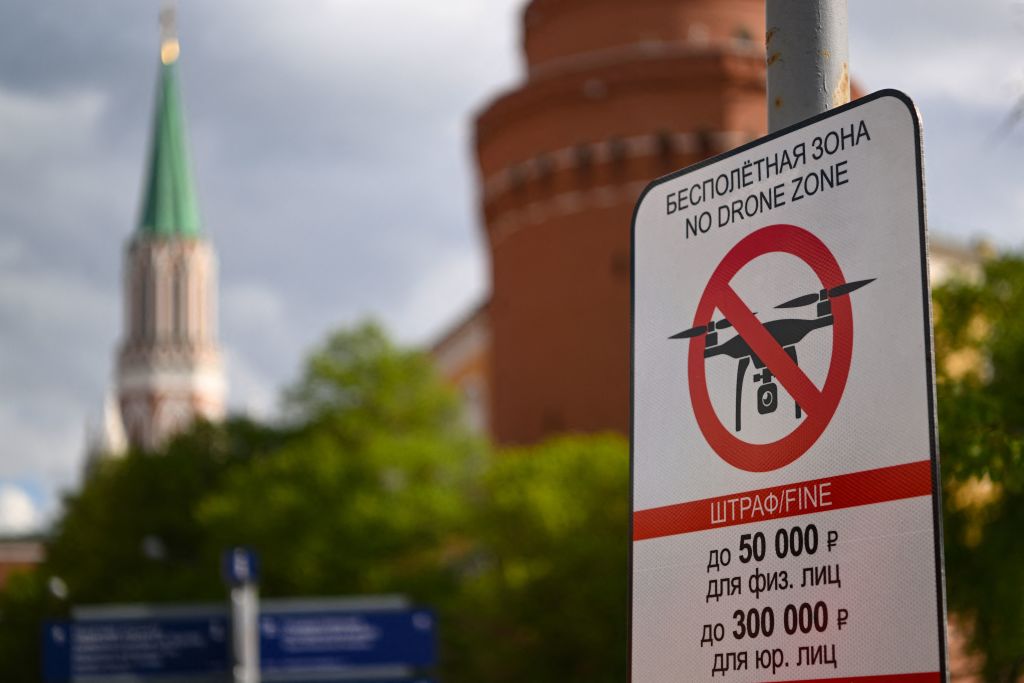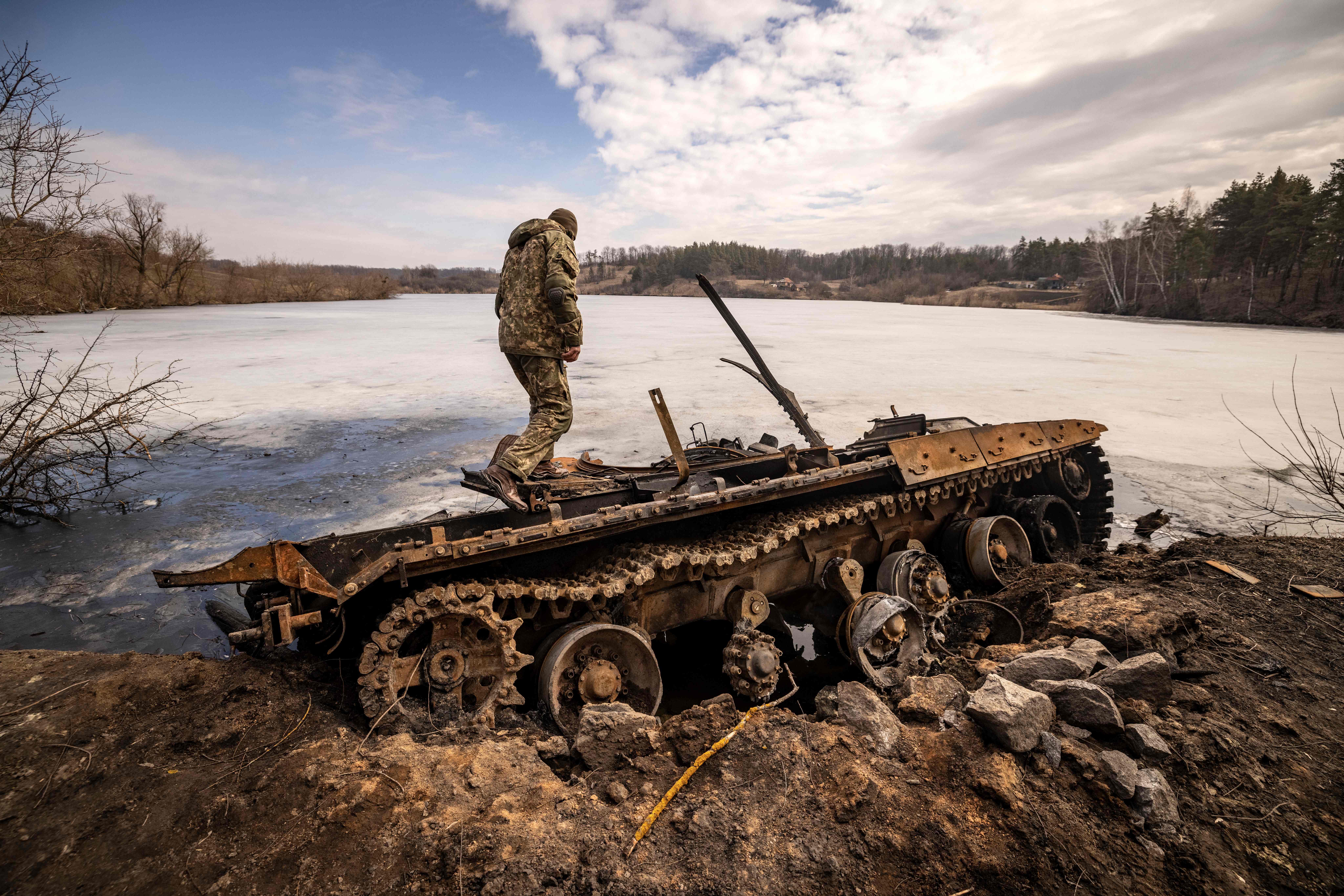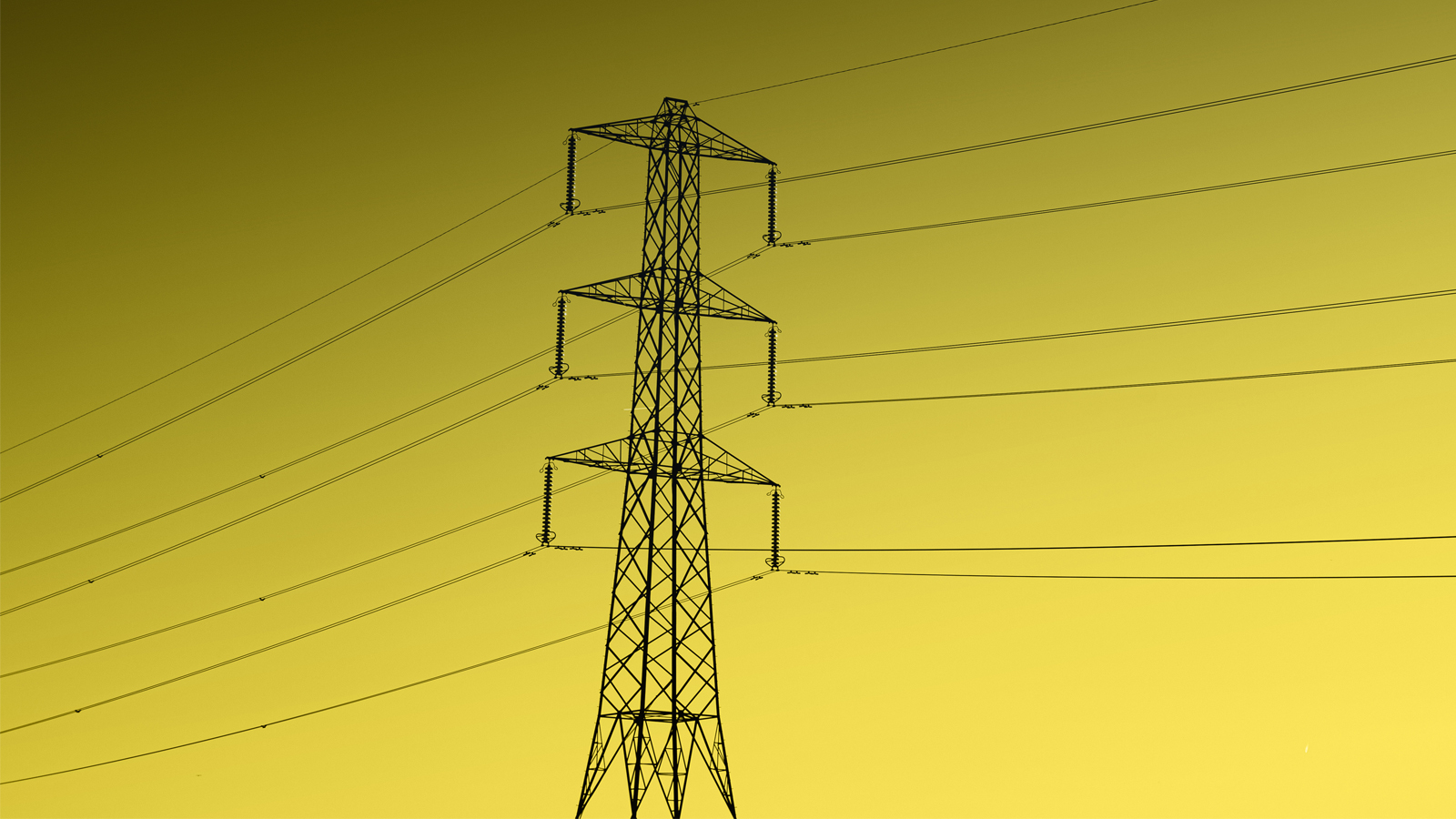Latin America's leftward swing
With Gustavo Petro's win in Colombia, leftist leaders now hold power in 9 Central and South American countries


A free daily email with the biggest news stories of the day – and the best features from TheWeek.com
You are now subscribed
Your newsletter sign-up was successful
Former left-wing guerilla Gustavo Petro's election as president of Colombia is only the latest example of a progressive wave sweeping Latin America. Here's everything you need to know:
What happened in Colombia?
Senator Gustavo Petro won Colombia's presidential contest on Sunday, becoming the first leftist elected to lead the South American country. Petro defeated businessman and political outsider Rodolfo Hernández, winning about 11.3 million votes to Hernández's 10.6 million.
Petro ran on the call for free higher education, universal healthcare, and an end to new oil exploration. He has also proposed legalizing medicinal marijuana and negotiating with the ELN narco-rebel group as steps toward "peacefully dismantling drug trafficking." Notably, the new president-elect also spent time in prison in the 1980s for his involvement with the M-19 urban guerilla group.
The Week
Escape your echo chamber. Get the facts behind the news, plus analysis from multiple perspectives.

Sign up for The Week's Free Newsletters
From our morning news briefing to a weekly Good News Newsletter, get the best of The Week delivered directly to your inbox.
From our morning news briefing to a weekly Good News Newsletter, get the best of The Week delivered directly to your inbox.
What is the reaction in the United States?
U.S. Secretary of State Antony Blinken said Sunday that President Biden looks forward to working with Petro. The American right was less optimistic: "The election in Colombia of a former narco-terrorist Marxist is troubling and disappointing. The spread of left-wing totalitarian ideology in the Western Hemisphere is a growing threat," Florida Gov. Ron DeSantis (R) wrote on Twitter.
Daniel Di Martino, who came to the U.S. from Venezuela in 2016 and founded the anti-socialist Dissident Project, warned Colombians that Petro's election had placed their country on the path to becoming a failed state. "Sell your stuff while things have value, buy tons of non-perishable food if you have to stay, maybe car tires too. Save in U.S. dollars. And leave as soon as you're able," he wrote on Twitter.
W. T. Whitney, writing for CounterPunch, was as exultant as Di Martino was apocalyptic. "The historical significance of this electoral victory in Colombia cannot be overstated," Whitney wrote. "By all accounts, candidates and voters alike have taken on a new hopefulness. They can anticipate both a possible reduction in the dispossession and violence marking decades of Colombian history and amelioration of the marginalization and rampant poverty diminishing the lives of so many Colombians."
Which other Latin American countries have leftist or left-leaning leaders?
Cuba: Miguel Díaz-Canel (since 2019; one-party state since 1959)
A free daily email with the biggest news stories of the day – and the best features from TheWeek.com
Venezuela: Nicolás Maduro (since 2013; dominant-party state since 1999)
Nicaragua: Daniel Ortega (since 2007)
Mexico: Andrés Manuel López Obrador (since 2018)
Argentina: Alberto Fernández (since 2019)
Bolivia: Luis Arce (since 2020)
Peru: Pedro Castillo (since 2021)
Honduras: Xiomara Castro (since Jan. 2022)
Chile: Gabriel Boric (since March 2022)
Why has there been a leftward swing in the Americas?
Mexico City-based analyst Valeria Vasquez attributes the recent leftward shift to the rise of the activist "millennial left," increased commodity prices, and the timing of normal political cycles.
Samantha Schmidt argued in The Washington Post that it was the COVID-19 pandemic that "transformed" Latin American politics. "The pandemic hit the economies of this region harder than almost anywhere else in the world, kicking 12 million people out of the middle class in a single year. Across the continent, voters have punished those in power for failing to lift them out of their misery. And the winner has been Latin America's left, a diverse movement of leaders that could now take a leading role in the hemisphere," she wrote.
What about Brazil?
Brazil's right-wing president, Jair Bolsonaro, is trailing badly in the polls ahead of October's first-round election. A survey conducted last month showed Bolsonaro winning around 27 percent of the vote, with left-wing former President Luiz Inácio Lula da Silva — known as "Lula" — at 48 percent.
Lula left office in 2010 with an approval rating of 80 percent but was barred from running in the 2018 election due to a corruption conviction. The conviction was subsequently overturned by Brazil's supreme court.
Drawing on former U.S. President Donald Trump's playbook, Bolsonaro has begun raising concerns about election integrity, concerns many of his allies in the military have echoed. Bolsonaro has suggested that the military should conduct an independent vote count on the day of the election. Critics warn that Bolsonaro, who has spoken positively about the military dictatorship that governed Brazil from 1964 until 1985, could be planning to attempt a military self-coup if he loses the election.
What does this mean for Latin America?
One result of the progressive wave in Latin America has been the rapid expansion of abortion rights.
Argentina's National Congress passed a law in 2020 permitting abortion on-demand during the first 14 weeks of pregnancy. The Supreme Court of Mexico decriminalized abortion a year later, and Colombia's Constitutional Court enacted a similar ruling in February 2022.
In Chile, which since 2017 has allowed abortion in cases of rape and when the mother's life is at risk, voters will decide in September whether to approve a new constitution that enshrines elective abortion. Polling conducted in April showed that 46 percent of Chileans planned to vote against the proposed constitution, while 40 percent planned to vote for it.
Lula said in April that abortion should be "a question of public health (and) to which everyone has the right." Even if Brazil does not expand abortion rights legislatively, Omar G. Encarnación points out in The Nation that Brazil's Federal Supreme Court has the right to "intervene whenever it deems that the rights of a vulnerable minority are at risk." Because the court previously used this power to criminalize anti-LGBT discrimination, "it is not inconceivable that at some point in the future the court will also legalize abortion," Encarnación writes.
Grayson Quay was the weekend editor at TheWeek.com. His writing has also been published in National Review, the Pittsburgh Post-Gazette, Modern Age, The American Conservative, The Spectator World, and other outlets. Grayson earned his M.A. from Georgetown University in 2019.
-
 Political cartoons for February 12
Political cartoons for February 12Cartoons Thursday's political cartoons include a Pam Bondi performance, Ghislaine Maxwell on tour, and ICE detention facilities
-
 Arcadia: Tom Stoppard’s ‘masterpiece’ makes a ‘triumphant’ return
Arcadia: Tom Stoppard’s ‘masterpiece’ makes a ‘triumphant’ returnThe Week Recommends Carrie Cracknell’s revival at the Old Vic ‘grips like a thriller’
-
 My Father’s Shadow: a ‘magically nimble’ film
My Father’s Shadow: a ‘magically nimble’ filmThe Week Recommends Akinola Davies Jr’s touching and ‘tender’ tale of two brothers in 1990s Nigeria
-
 Did Ukraine orchestrate the Kremlin drone strike?
Did Ukraine orchestrate the Kremlin drone strike?Speed Read If Kyiv isn't behind the humiliating attack, who is?
-
 Stealing Ukraine's children
Stealing Ukraine's childrenSpeed Read Vladimir Putin has been charged with war crimes for abducting thousands of Ukrainian children. Why is he doing this?
-
 Russia's shadow army
Russia's shadow armySpeed Read The Wagner Group, accused of numerous war crimes, has sent tens of thousands of mercenaries to fight in Ukraine
-
 The F-35 fighter jet's troubled history
The F-35 fighter jet's troubled historySpeed Read Why 'the most expensive weapon in human history' still can't get off the ground
-
 The U.S. gave Ukraine tanks. Are jets next?
The U.S. gave Ukraine tanks. Are jets next?Speed Read How to balance helping Ukraine without triggering a wider war with Russia
-
 Can climate change lose Russia the war in Ukraine?
Can climate change lose Russia the war in Ukraine?Speed Read Russia's 'trump card' surprisingly took a major hit this winter
-
 Why Turkey is blocking NATO's expansion
Why Turkey is blocking NATO's expansionSpeed Read Sweden and Finland have applied to join the alliance. Not so fast.
-
 Why America's electrical grid is vulnerable to attack
Why America's electrical grid is vulnerable to attackSpeed Read Assaults on the grid are increasingly frequent
